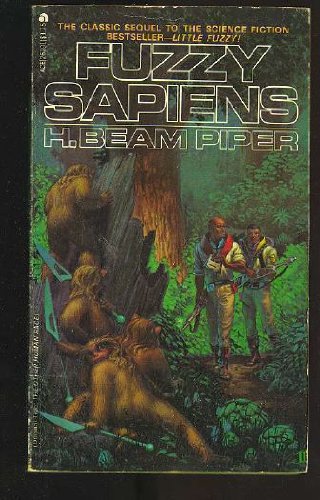

One day, Holloway meets a small golden-furred humanoid whom he names "Little Fuzzy", who soon introduces Holloway to his family.

Protagonist Jack Holloway lives a solitary life mining valuable "sunstones" in the wilderness of the planet Zarathustra, managed by Victor Grego's Chartered Zarathustra Company, which built colonial outposts there and now reaps the benefits of the planet's resources. In 2011, John Scalzi published Fuzzy Nation, which he described as a "reboot" of Piper's original. Wolfgang Diehr wrote or co-wrote three sequels, published by Pequod Press: Fuzzy Ergo Sum (2011), Caveat Fuzzy (2012), and Fuzzy Conundrum (2016, with well-known Piper historian John F. It was published in 1984 as Fuzzies and Other People. Later, Piper's lost manuscript was discovered. Ace also hired Ardath Mayhar in 1982 to write Golden Dreams: A Fuzzy Odyssey, which tells the events of Little Fuzzy from the viewpoint of the Fuzzies (or Gashta, as they call themselves). In the wake of Piper's suicide, rumor spread of a lost "second sequel" in 1981, at the behest of Ace Books, William Tuning produced the critically acclaimed Fuzzy Bones. The book was followed by a sequel, Fuzzy Sapiens (original title The Other Human Race) published in 1964, the same year that Piper died by suicide. It features a mild libertarianism that emphasizes sincerity and honesty. The story revolves around determining whether a small furry species discovered on the planet Zarathustra is sapient. It was nominated for the 1963 Hugo Award for Best Novel. Little Fuzzy is a 1962 science fiction novel by H.


 0 kommentar(er)
0 kommentar(er)
